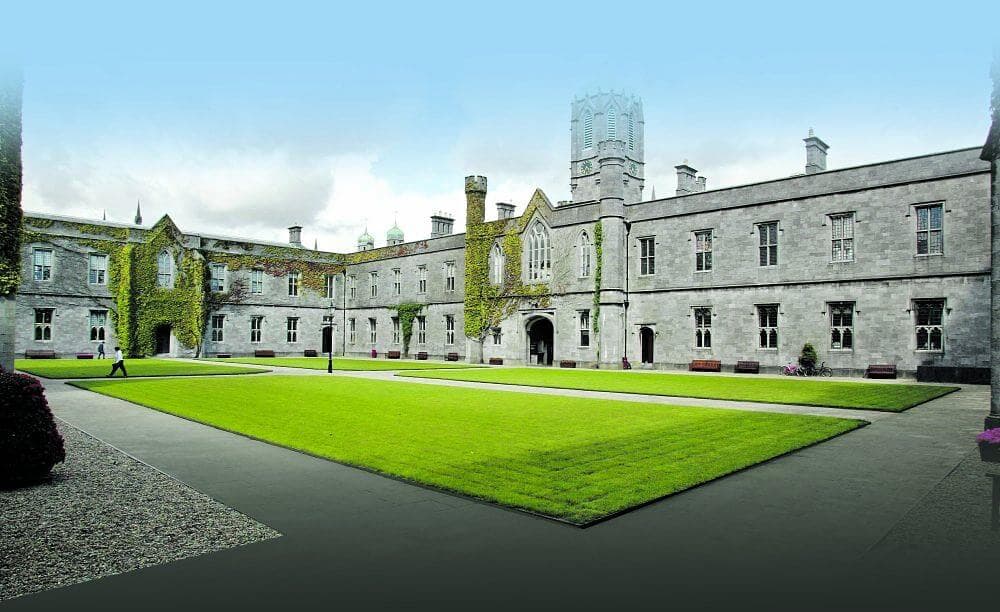This multidisciplinary course integrates and evaluates environment, health, and sustainability issues within the natural and built environment. Students gain experience of research-led learning opportunities in Environmental Science, Engineering and Economics that will develop skills in identifying and evaluating sustainable solutions for real world problems. A key aspect is that students learn by doing. Fieldwork and site visits, where students learn from practical experience are essential elements.
The course structure is based on a 90 ECTS model, with 60 ECTS coming from taught modules. A research project in Semester 2 Summer accounts for the remaining 30 ECTS. Assessment comprises continuous assessment (C/A) solely in Semester 1, and a combination of C/A and examination for some modules in Semester 2. Students must submit a report on their research project at the end of the summer in Semester 2.
Taught modules include: Ecosystems Assessment, The Built Environment, Renewable Energy Economics and Policy, The Environment and Human Health, Environmental Problems & Solutions, Biodiversity and Conservation, Environmental Resilience, Water Quality, Energy in Buildings, and Communicating Science & Research.
Students will develop skills to appraise sustainability issues and challenges associated with (a) integrating the built and natural environments, in particular, biodiversity mitigation measures (b) landscape evaluation and nature conservation and (c) interlinkages between the environment and human health.
Students will define current practice relating to management natural and built environments in Ireland and relate this to best practice. They will evaluate environmental issues and problems, and their drivers. Specific instances may relate to particular issues such as invasive species, water quality, green space policies, or renewable energy policy economics, for example.
Students will examine policy responses in relation to sustainability in Irish urban and rural settings, and selected international case studies. They will acquire experience in best practice in identification, surveying, mapping, assessment and management techniques at species, habitat and landscape level.
Students will assess how the development and implementation of sustainability policy in the past has met the requirements of stakeholders, both in Ireland and elsewhere. They will be able to apply appropriate techniques for sustainability, for example, energy in buildings, relative to relevant legislation and policy.
Students will synthesise and explain the complexity of both natural and socio-economic systems, together with an understanding of existing and novel sustainability policy options, to develop a competency in identifying and evaluating optimal policy options. They will assess ‘reality checking’ of candidate sustainability policies, to ensure that as far as can be determined there exist no important reasons (financial, technical, social, governance) why implementation is impractical, for example, renewable energy policy and economics.
Students learn to assess the gaps in their own knowledge, and develop skills in comprehending and evaluating information from field- and site-visits, in academic journals, books and websites. Students develop competencies in both individual and group based project scoping, development and conclusion, and the coherent and succinct reporting of findings. Student manage, assess and reflect on their learning process in a reflective journal. They build on this to be able to effectively and persuasively use the evidence-base to communicate findings appropriately using a variety of fora.
Students learn from current practice in relation to the built and natural environment at international, national, regional and local levels, and based on the evaluation, recommend and implement improvements to current practice to ensure environmental resilience. Develop a realistic assessment of the challenges faced in developing and implementing policy to enhance sustainability. Demonstrate their awareness of the skillset they acquire throughout the course in a reflective journal in terms of any role that they themselves may play in advancing the roll-out of appropriate policy and actions in future.
Year 1 (90 Credits)
- Required MI5106: Environmental Resilience
- Required EV602: Ecosystems Assessment
- Required EV6101: The Environment and Human Health
- Required EV603: Biodiversity & Conservation
- Required EV604: Environmental problems & Solutions
- Required EC5102: Renewable Energy Economics and Policy
- Required CE466: Energy in Buildings
- Required CE476: The Built Environment
- Required EV5103: Sustainable Environments Research Project module
- Optional BI5108: Green Lab Principles and Practice
- Optional CE6107: Water Quality
- Optional EV5102: Communicating Science and Research
